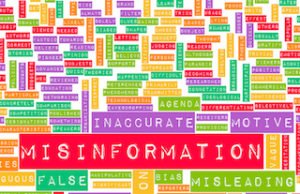For just about every financial scam that comes to light, we’re willing to bet the following is true:
- The telltale fraud signs were visible to many observers.
- Financial professionals were “blind” to predatory colleagues or competitors because they were afraid to get involved.
- More people got hurt than should have had someone blown the whistle.
Of course, Bernie Madoff is the poster child of this phenomenon. In his case, presumably hundreds of financial advisors who may have wondered about Madoff’s “success” kept silent. And even highly experienced financial regulators were initially unwilling or unable to take action against him, despite financial analyst Harry Markopolos’ persistent warnings over a nine-year period. Unfortunately, the SEC missed its opportunity to shut down the largest financial crime in U.S. history, which ultimately vaporized some $18 billion in client assets.
A more recent case tells much the same story, although on a tremendously smaller scale. According to the SEC, Leroy Brown, Jr., of Killeen, Texas, perpetrated a fraudulent scheme to lure current and former military personnel to invest with him and his firm, LB Stocks and Trades Advice, LLC.
According to authorities, Brown claimed to be fully registered and licensed with FINRA and the SEC and to have substantial experience as a securities broker. He also pitched consumers on buying $1,000 shares to participate in real estate developments that he claimed would double or triple in value. What’s more, he said his firm offered stock trading, mutual funds, exchange traded funds, commodities, and foreign exchange currencies, as well as business affiliations with Walmart, Apple, Sony, Microsoft, Best Buy, HP, USA Today, and McAfee. He even claimed he operated offices in New York City’s financial district and in San Francisco.
Well, you know where we’re headed with this. None of Brown’s claims was true. But they sounded plausible to investors, who wired what the SEC called “substantial deposits” directly into his personal brokerage account. Brown then transferred client funds from his brokerage account to his personal bank account, after which he put it to good (read: “evil”) use.
Such a sweet deal for Brown… and such a tragic one for the soldiers who served their country so bravely, only to fall prey to Brown’s thieving cowardice. But here’s what we’re wondering: With Brown making such egregiously false claims, surely a competitor noticed what he was doing and could have notified authorities. Yet the SEC only filed its complaint in April 2015, more than a year after the advisor began his scheme. Why did it take so long for the scam to be shut down?
We obviously don’t know all the facts here, but we can offer some educated guesses. Advisors operating in Brown’s market may have been:
- Wrapped up in their own affairs and didn’t pay heed to what was going on.
- Aware of what was happening, but didn’t want to get involved for fear of becoming a “snitch.”
- Concerned about Brown’s fraud, but fearful of dealing with regulators.
- Reluctant to step up because they didn’t want the time or expense of giving testimony at trial.
- Afraid of retribution from the defendant if he was, in fact, convicted of his alleged crimes.
- Convinced someone else would eventually blow the whistle.
Ultimately, someone did blow the whistle, and at some point justice will surely be done. But is there a better way to protect America’s financial consumers? Indeed, there is. The National Ethics Association urges advisors to step up and report fraud as soon as they witness it. Doing so will help to prevent the following devastating consequences:
- Millions of dollars of financial losses by hundreds of thousands of innocent Americans.
- The erosion of the public’s trust in financial advisors, which makes the job of adding new customers that much harder.
- The increased cost of business that may strain financial institutions and reduce the advisor compensation they’d otherwise be able to pay.
- The increased regulatory scrutiny that results from scams, which forces honest advisors to spend more on compliance.
- The guilty conscience that comes from allowing scammers to operate with impunity.
So the next time you hear or see an unscrupulous advisor doing something wrong or criminal, don’t just avert your eyes. Do the right thing and report it to the authorities. It’s your ethical duty, and trust us… you may actually enjoy doing it!
Harry J. Lew is Chief Content Officer at the National Ethics Association. For more information on ethical business practices, please visit the National Ethics Association’s Ethics Center. For more information on affordable errors and omissions insurance for low-risk financial advisors, visit E&OforLess.com.













